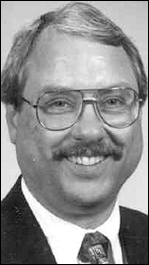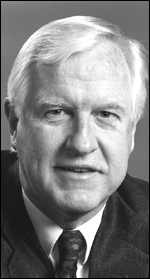On 911—the date that numerically signifies modern shorthand for emergency response—the tranquil blue skies over America’s largest city bloomed with orange fire, black cloud and molten metal, and a world audience watched dumbstruck as two great towers burned, trembled, and then tumbled to the earth.
Two hundred and twenty-five miles southwest, outside the Nation’s Capital, the Pentagon exploded, shuddered, and burned.
Two hundred and twenty-five miles northwest, a group of determined airline passengers wrought their own destruction in a rural Pennsylvania field rather than be used as a fourth suicide missile.
The creaking hinge of fate groaned in protest as the door slowly shut on an era and the world changed.
Through the wonders of modern technology, almost a tenth of the world’s population is believed to have watched the terrorist attacks on 9/11, one broadcast on television as it happened, with the aftermath unfolding live through the balance of the day. Hostages to disbelief, they witnessed the incredible, saw the unbelievable, participated unbidden in a tragedy beyond the ken of sentient beings and wondered what to do.
Thousands died.
Within minutes, tens of thousands more began to respond. Among them were the academic dean at Wesley Theological Seminary in Washington, D.C., four miles northwest of the White House and, 3,000 miles west, the leaders of the Graduate Theological Union in Berkeley, California. Their stories exemplify the responses of individuals and institutions in theological education to the attack that changed America, and show how seminaries at their best might shape and sustain public understanding.
On the East Coast
In Washington, as the world and its media focused on national leaders and their responses, a pastoral care mission was quietly launched to provide help to staff members of the White House, who it is believed had been initial targets of the airliner that subsequently hit the Pentagon.
 |
| Bruce C. Birch |
“Someone fairly high up—we don’t know who,” said Wesley’s academic dean, Bruce C. Birch, “suggested the White House medical office provide psychological and spiritual resources for the staff.” Most analysts believe the White House was the target of the plane that hit the Pentagon. It was being evacuated when the plane went screaming over, marines running down the corridors ordering everyone out. The plane went over too high and too fast to make the turn necessary—inexperienced pilots—and so the Pentagon became the secondary target. If it weren’t for that serendipity, Birch said, the presidential offices and residence would have been hit.
“The next day these employees had to come back to work. Their jobs are just too important,” said Birch. The challenge was how to provide appropriate care for them.
That care began with a call from Barbara Idone, White House medical office administrator. “Because of our location, some of our graduates had ties to the White House,” said Birch. “They called Wesley and asked for me.”
On Thursday morning Birch joined in a brainstorming session at the White House with psychologists and psychiatrists and specialists in trauma work. Drawing on Wesley’s resources within the faith community, Birch helped assemble a team of rabbis, priests, pastors, and an imam. The next morning, while the nation was focused on the televised service of prayer and remembrance at Washington National Cathedral, Birch and his team led a standing-room-only service in the Executive Office Building for White House staffers.
In subsequent days individual religious ministers paired with psychologists and brought services to different groups and departments, offering personal appointments for follow-ups.
“People probably think of ‘West Wing’ when they think of White House staff,” said Birch, “but we’re not talking about political appointees. One group was the group who answer the telephone hotlines; another was the groundskeepers—a group that, it turns out, often feels targeted. We saw everyone from housekeeping to presidential advance people.
“We talked about their experiences that day and their experiences with their families; about prayer life and theodicy,” the role of evil in the divine economy, said Birch. “It deepened my sense of the pastoral needs of people wherever they’re working.
“It’s just what any seminary would do to respond in the community where it is located. It happened in our parish and I’m glad we were able to respond as we did.”
On the West Coast
In California, the nine presidents of the schools of the Graduate Theological Union met for breakfast on the morning after the attack, and rapidly formed their response. “We developed four or five different proposals,” said William McKinney, president of Pacific School of Religion, “recognizing that we have, within the consortium, faculty who are a resource to the faith communities we serve.”
 |
| James Donahue |
Within hours, he said, GTU President James Donahue had his charge and, in addition to worship services and a blood drive, was planning for a full-scale workshop to explore pastoral and preaching responses. The goal was to help the helpers—to equip the ministers to whom people would be turning in unprecedented numbers, churched and unchurched alike.
The consortium’s database allows them to reach thousands by e-mail. Within forty-eight hours all pastors in the Bay Area had been sent invitations. Less than a week later more than 250 area ministers, seminarians and members of the public were assembled at the PSR chapel for “Preaching and Pastoral Care in a Time of Terror,” a workshop led by eight of GTU’s faculty.
Beginning with a clinical overview of factors affecting individual responses to disaster, the workshop first addressed practical pastoral care issues and then offered resources and directions for preaching. The spirituality of the meeting was audibly captured by closing speaker J. Alfred Smith, professor of homiletics and functional theology at American Baptist Seminary of the West, who emphasized his message of “anointing the preacher’s personality with the presence and power of the Holy Spirit” by singing, in a deep baritone, verses of the familiar spiritual “Nobody knows the trouble I’ve seen, nobody knows but Jesus.”
Other panelists included Rosemary Chinnici, professor of psychology at Starr King School for the Ministry, Kelly Bulkeley and Lewis Rambo, professors of religion and psychology at San Francisco Theological Seminary, Roy Sano, professor of United Methodist studies at PSR, Jon Endres, professor of biblical studies at Jesuit School of Theology at Berkeley, Lizette Landers-Miller, professor of liturgical studies at Church Divinity School of the Pacific, and Michael Monshau, professor of homiletics at Dominican School of Philosophy and Theology.
GTU continues its outreach by offering streaming audio of the workshop on the PSR web site <http://www.psr.edu/page.cfm?l=237> <http: page.cfm?l="237"> which may be heard on any computer equipped with speakers and free downloadable RealAudio software. The response has been substantial, with more than a million hits in the three months following 911 according to PST’s Mckinney.</http:>